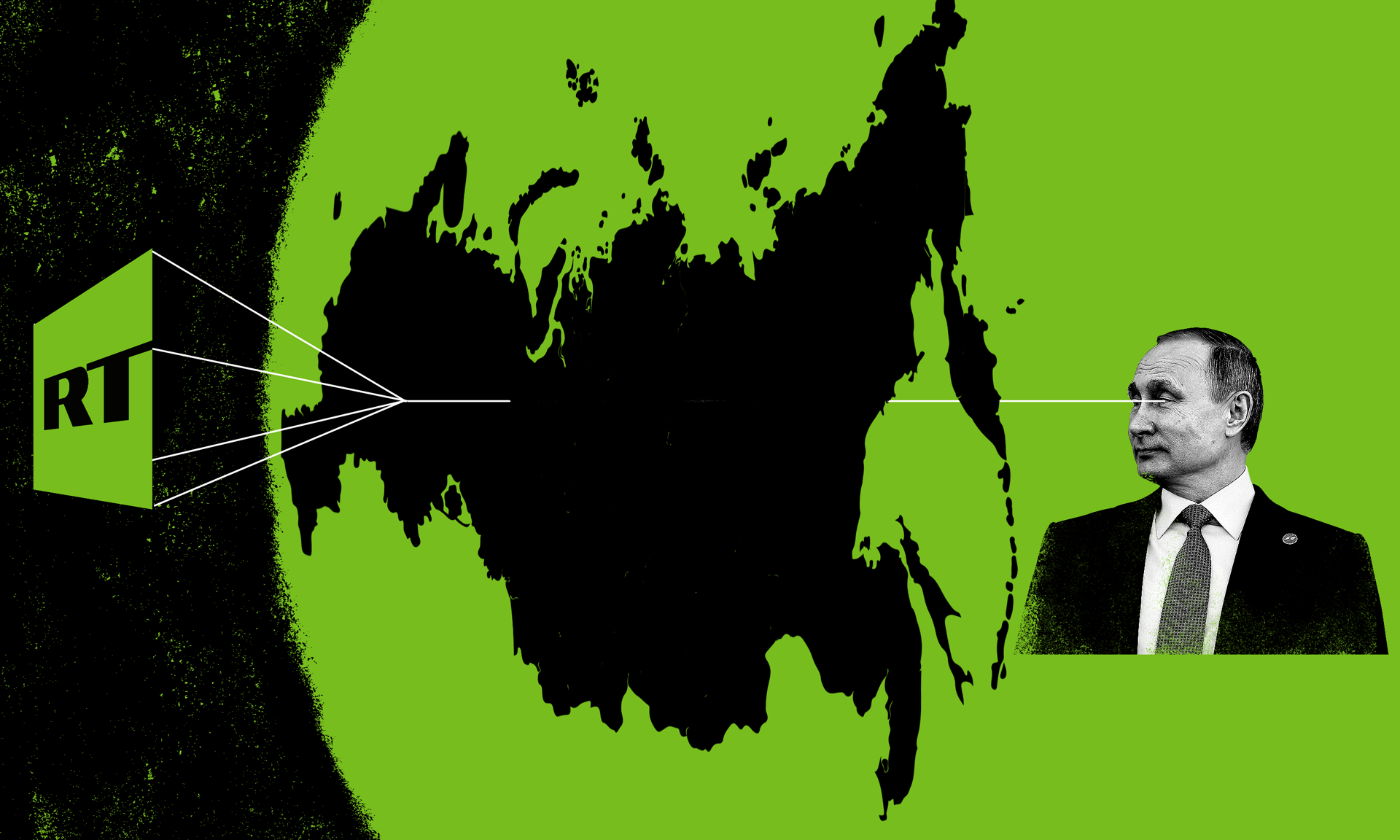There Is No 'Military Defense' Against A Russian News War
By now, most Americans are aware of the U.S. intelligence community's assessment that Russia interfered in the 2016 election so that it would benefit then-candidate Donald Trump. American experts believe Russian military intelligence agencies deployed aggressive disinformation campaigns via pro-Russia websites and social media—even attempted to hack into polling machines, as we found out recently. Now the Kremlin is honing in on American military personnel.
POLITICO Magazine reports that the Russian government is hoping to sow the same strains of discontent among U.S. service members and veterans through social media. One of the engagement tactics for Facebook is simple: an attractive woman sends a friend request.
This targeting is looking for one main response: "Friend request accepted."
The targeted social media users will then get pro-Russia propaganda on their news feeds. Serena Moring, an ex-military contractor, told POLITICO Magazine she noticed U.S. soldiers responding positively to an unverified story of a Russian military service member dying during a fight against ISIS in Syria.
Most of the U.S. troops responded favorably to the story, even though it wasn't proven to be true. From the story:
"All of the response from the military guys was like, 'That is awesome. That's an epic way to die,'" recounted Moring, 39. "It was a very soldier-to-soldier bond that was created through social media."
Moring said she has become further alarmed as friends of hers in the military, including military intelligence, have become avowed admirers of Putin, and that she now expends considerable effort arguing about Russia on Instagram and Facebook channels geared to military audiences.
Retired Gen. Philip Breedlove, former supreme allied commander of NATO, also told the outlet he's the target of phishing emails purporting to come from his bank; Breedlove declined to name the bank, but says his fellow officers use the financial institution as well. Also, hacked emails from his Gmail account found their way on D.C. Leaks, which is widely considered a Russian front site.
There is no publicly-available information on how much Russia's targeted information war is impacting military officials, but there is likely very little that can be done to stop it. Sure, the Department of Defense can protect servers and computers, tell personnel to be mindful of Russian front sites and, of course, remind them they take orders from the White House, not the Kremlin.
But does any of that matter if said soldiers voted for Trump because they believe in his values? I doubt it. Sure, they wear the uniform of American military personnel, but that has nothing to do with how they vote. According to a CNN exit poll, 60 percent of veterans voted for Trump. The Washington Post reported that veterans in key swing states supported Trump, noting that his attacks against a Gold Star family last summer did little to influence their thinking.
If we want to examine possible Russian objectives, we can take former national security adviser Michael Flynn as a primary example. Former and current American officials told the New York Times they collected information last summer on Russian spies discussing how they could use Trump's advisors to exert influence over then-presidential candidate Trump. I also reported that Flynn's firing by former President Barack Obama in 2014, for example, made him a prime target of the Kremlin. If, indeed, Flynn was wittingly or unwittingly working for the Russians, we could argue their investment was working. And The Daily Beast reported last week that Flynn had worked so hard to convince the Pentagon to cooperate with Russia that his efforts may have been illegal had they succeeded.
The main takeaway is that if Russia could influence Flynn, why not try to influence other members of the military and cultivate goodwill among them via fake news?
It seems to be working with many in the Republican Party and Trump's most passionate supporters. Watching Republicans during James Clapper and Sally Yates' hearing gives one the impression the GOP cares more about discrediting the Russia investigation than finding out if Trump is in cahoots with the Kremlin.
Ronna McDaniel, chairwoman of the Republican National Committee, said yesterday the investigations need to end, calling it a "fishing expedition." Former GOP House Speaker Newt Gingrich recently called it a "witch hunt" on Fox News Sunday. Indeed, it is safe to say Moscow has Washington on deadlock.
Information wars are technical in nature, but ultimately what makes them successful is whether or not people can decipher fake news and if their political or social views make them susceptible to being groomed for Russian propaganda. This is not solely a military defense issue. It is a psychological and social one that taps into one's personal beliefs, political biases, and even whether racism plays a role in why one's support of Trump quells any suspicion of Putin.
U.S. military personnel are human beings, just like their fellow Americans who have never served their country. They are just as vulnerable to lies and manipulation like the rest of us. But what makes Russian targeting of American military personnel even more frightening is that their support of Trump can make them eligible to be the next Michael Flynn.
Or something worse we have yet to even realize.
